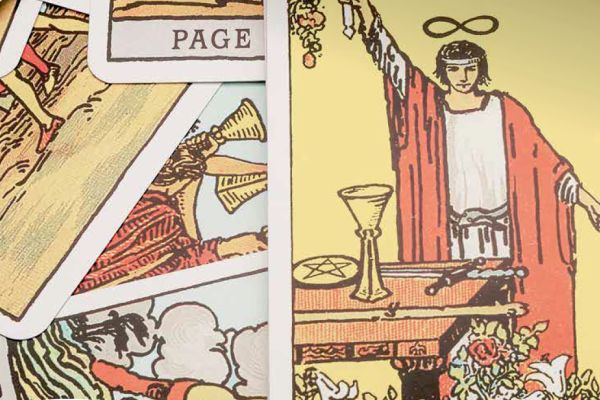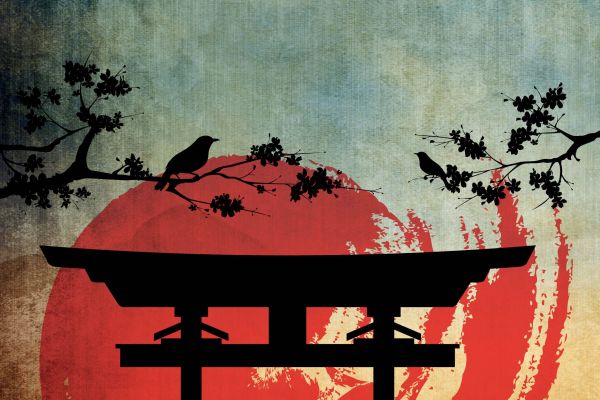As a counsellor or therapist, I wonder how you feel about getting older? Is it something that you worry about? Something that you embrace with dignity and in a peaceful state of mind? Something that you are too busy to contemplate?
In the UK’s media-driven society, where the focus is often on the young, the rich, and the famous, it is easy to feel that you become increasingly redundant as you age (even if you do manage to attain some degree of fame). In the Western world, we have an attitude akin to worship towards youth and beauty – something that has not changed, especially for women, since the advent of feminism.1 Men too seem to feel the ageing process and to worry about ‘performance’ and losing their strength in various ways, as they age.2
There also seems to be an innate state of panic in many young people to achieve as much as they can at as young an age as possible. This means that some younger people go on to study for doctorates purely as a sensible career move. Doctorates used to be a way of letting the world know that after many years of experience in your specialised field, you had something unique to share with others. Your age and experience meant that you would be listened to, and it was felt that you had acquired wisdom and knowledge over a long period of time. In other cultures, especially in the East, there is a deeply rooted respect for the wisdom that comes with age, and it is understood that this is a slowly evolving process.
BACP has acknowledged the special nature of work with older people in a report published in 2004: Counselling Older People: A Systematic Review, in which a ‘systematic review of literature’ offers an overview of the need for counselling for the older person and summarises what was already in place.3* The studies included in the review, (summarised on page 10 of the report) range from the year 1987 to 2003.
Some striking demographic facts are stated in this report:
‘In England alone, since the early 1930s, the number of people aged over 65 has more than doubled. Between 1995 and 2025 the number of people over the age of 80 is set to increase by almost a half and the number of people over 90 will double (Department of Health, 2001). The inexorability of these trends is underlined by continuous and incremental increases in life expectancy. In England, average life expectancy at birth is rising at about 0.25 years per year for males and 0.16 years per year for females (Association of Public Health Observatories, 2003).’
In defining ‘older age’ the difficulty with deciding when this period of life begins is also acknowledged in the report, with an age span of around 60 being the starting point, but some feeling that 55 or even 50 are more relevant age markers.
With regard to mental health problems, there are comments in the report about the importance of mental healthcare for the older person and the need for ‘… an area of public policy to be recognised by Government, the underdetection of mental illness in older people having been identified as a key issue. Depression in people aged 65 and over is especially under-diagnosed, particularly among residents in care homes, perhaps indicative of a general tendency for mental health problems in older people to be perceived as an inevitable consequence of ageing, rather than health problems which are treatable (Department of Health, 1999)’.3
In BACP’s new strategic plan, older people are included as one of the key work areas. BACP intends to explore the ‘role of counselling in improving the lives of older people, and promoting the value of talking therapies to this group’.4
This general increase in life expectancy, while it delays for many the panic associated with old age approaching, gives us new challenges, as we have to live for longer, in many cases, with a reduced quality of life. The increased likelihood of developing dementia is another fear for many.
As a counsellor who did not begin training for my present career until I was 40, I moved into the world of work outside the home as a mature student, with three school-age children – and I was immediately aware of doing things, if not ‘the wrong way round’ then definitely ‘not in the usual order’. I did not gain a university degree until I was 48 – rather than the usual 21 ‘coming of age’ achievement, customary for many.
Unlike many women of today, although I had worked from home, I had not been in the workplace since my late 20s. While living in South Yorkshire I was less aware of the ageing process in some ways as I was surrounded by all age groups. But when I moved to Cromer, in North Norfolk, three years ago, I immediately became aware that I was much younger (in my 50s!) than the average age of the people around me and the people that I was socialising with. This became a preoccupation of mine and it has been a strange experience to be viewed as something of a ‘youngster’ by people in their 70s, 80s and above.
In order to help myself come to terms with being forcibly reminded of my own mortality, I pondered what would be best to focus my energies on. Because of the number of older people around me, I decided to learn more about dementia and to begin volunteering to help older people in various ways, in my local community. The result of this is that I am now the Chair for Age Concern, North Norfolk, and also the Dementia Friendly Cromer group. I sing in a choir where the average age is about 68 and the oldest member is 93. So I can see the positive aspects of ageing as well, where enthusiasm for life is still abundant.
As for my counselling practice, the generally higher age demographic in this part of North Norfolk means that bereavement and loss are important aspects of my work. At the same time, the close-knit family networks mean that I do a fair amount of work with younger people too, and that family members often arrange a first counselling visit for an individual. Within the counselling process, family relationships are often crucial factors to the resulting success of the counselling relationship or otherwise.
It can be interesting to see how it is the older members who often contact me on behalf of a family member, but how also younger members do get in contact on behalf of their parents.
It is said that trees and a good wine improve with age, and I would suggest that counselling is one profession where the older you get, the better you can get at doing it. This is because as you gain more life experience, you can be more genuine in your empathic engagement, and you will have weathered more storms of many different kinds. Hopefully, we will also become more self-aware of how we impact on others, and of our ongoing struggle with our own personal prejudices.
The kind of wisdom needed in counselling can also be likened to the slow and patient maturing of a tree. The height above is always mirrored by the depth of the roots below, even though you often never see the roots at all except as knotty veins on the surface of the ground, where there is little green cover.
If we look at our lives from a spiritual standpoint, all the major religions have respect for age and the emerging wisdom that is often part of the ongoing process. In Korea, for example, where the three main religions practised are Buddhism, Christianity and Shamanism, one of the first questions you will most probably be asked by a Korean is ‘What is your age?’ because ‘age is a defining factor in how to speak and interact with one another’.5 In many cultures, elders are greatly respected for their wisdom and experience in life, and this strongly contrasts with the current Western view where we focus to a very great degree on staying young and looking young for as long as possible.
The prophet Isaiah reassures that ‘they that wait upon the Lord will renew their strength… they shall mount up with wings as angels; they shall run and not be weary, they shall walk and not faint.’6 Psalm 92: 14 refers to those ‘planted in the house of the Lord’ still bearing fruit in old age, ‘full of sap and very green’.7
The ‘godly’ are often referred to as being ‘evergeen’ and likened to fir and myrtle trees.8 These Bible verses, and others like them, have always been a comfort to me. I have had cause to find them relevant ever since I was a young child, in fact, because I suffered with much ill health then. I used to wonder what my life ahead would hold, having become used to being in bed and off school ill for lengthy periods of my childhood. I certainly became a deeply reflective person at a young age, and it is no accident that I finally entered one of the caring professions myself.
Within the counselling profession, I have never yet had a client who has given ‘fear of the ageing process’ as the main reason for coming to see me; and yet I often find that this is a factor within the needs of many clients. There is something about the fear of losing control over our energies and our mobility which can lead to a horror of the ageing process. There is also something about the effect of our visible signs of ageing on others around us that can strike fear into the very marrow of the individual, desperately clinging on to the last vestiges of youthfulness as the years pass. I heard someone refer recently to a choir of mainly ‘senior citizens’ in my local area as ‘the wrinklies’, and I for one was not smiling. Neither were most of the choir members.
As for death itself, this is definitely a taboo subject for many people. In our society we don’t talk much about death; and the mourning process, which can be long and drawn out, if we allow it to follow its own natural process, is something that many feel uncomfortable with. However, nature shows us, through the cycle of the seasons, that after full flowering, the tree sheds its leaves as part of the process of new growth later on. Life and death are intricately woven, and we cannot have one without the other.
In future articles, I hope to focus on aspects of the ageing process and how they affect our counselling practice.
Jennie Cummings-Knight works privately as a counsellor, writer, psychotherapist and lecturer in Cromer, Norfolk. Her current research interests include dementia, death anxiety and male identity issues. She welcomes comments and feedback. www.goldenleafcounselling.com
Related articles
More from Therapy Today

Shaping pastoral supervision
Open article: Gill Carding describes the work of the Association for Pastoral Supervision and Education (APSE). Thresholds, Summer 2016

Using archetypes in therapy
Free article: John Rowan explores the important topic of archetypes. Thresholds, Spring 2016

The heart of silence
Free article: Alastair McNeilage explores a possible new evolutionary step in counselling and therapy. Thresholds, Winter 2015
References
1. http://www.huffingtonpost.com/skylar-libertyrose/taboo-aging-woman_b_6716386.html (accessed 7 September 2016).
2. https://www.caring.com/articles/5-thingsmen-fear-about-aging (accessed 7 September 2016).
3. http://www.bacp.co.uk/admin/structure/files/pdf/9353_older_people_complete.pdf (accessed 7 September 2016). *BACP is currently updating the review, and the updated version will be available shortly.
4. http://www.bacp.co.uk/about_bacp/(accessed 7 September 2016).
5. http://www.koreaboo.com/interactive/these-11-wise-korean-proverbs-couldtransform-your-life/ (accessed 7 September 2016).
6. Bible: King James Version. London: Collins; 2011. (Isaiah 40: 31)
7. Bible: King James Version. London: Collins; 2011. (Psalm 92: 14)
8. Bible: King James Version. London: Collins; 2011. (Zechariah 1: 10)


